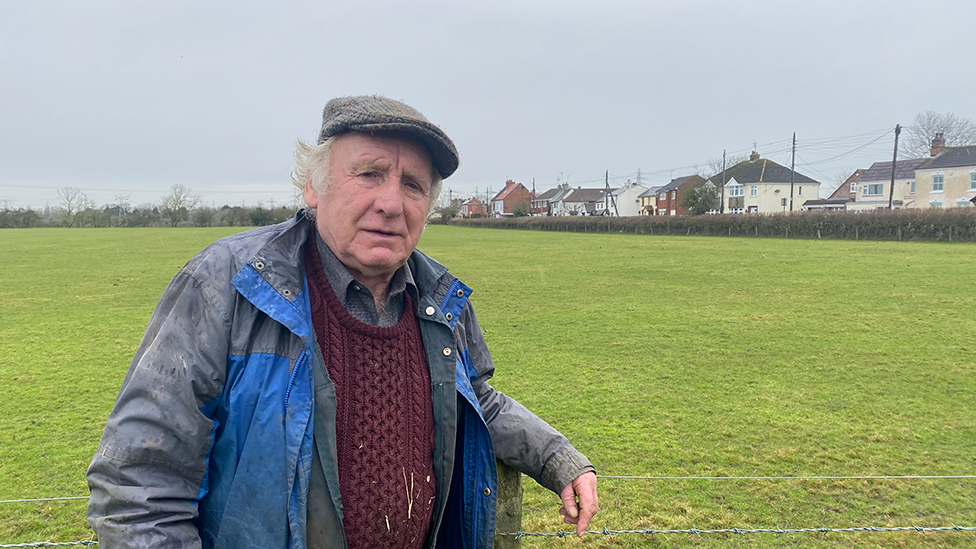Solar power divides Warwickshire’s farmers
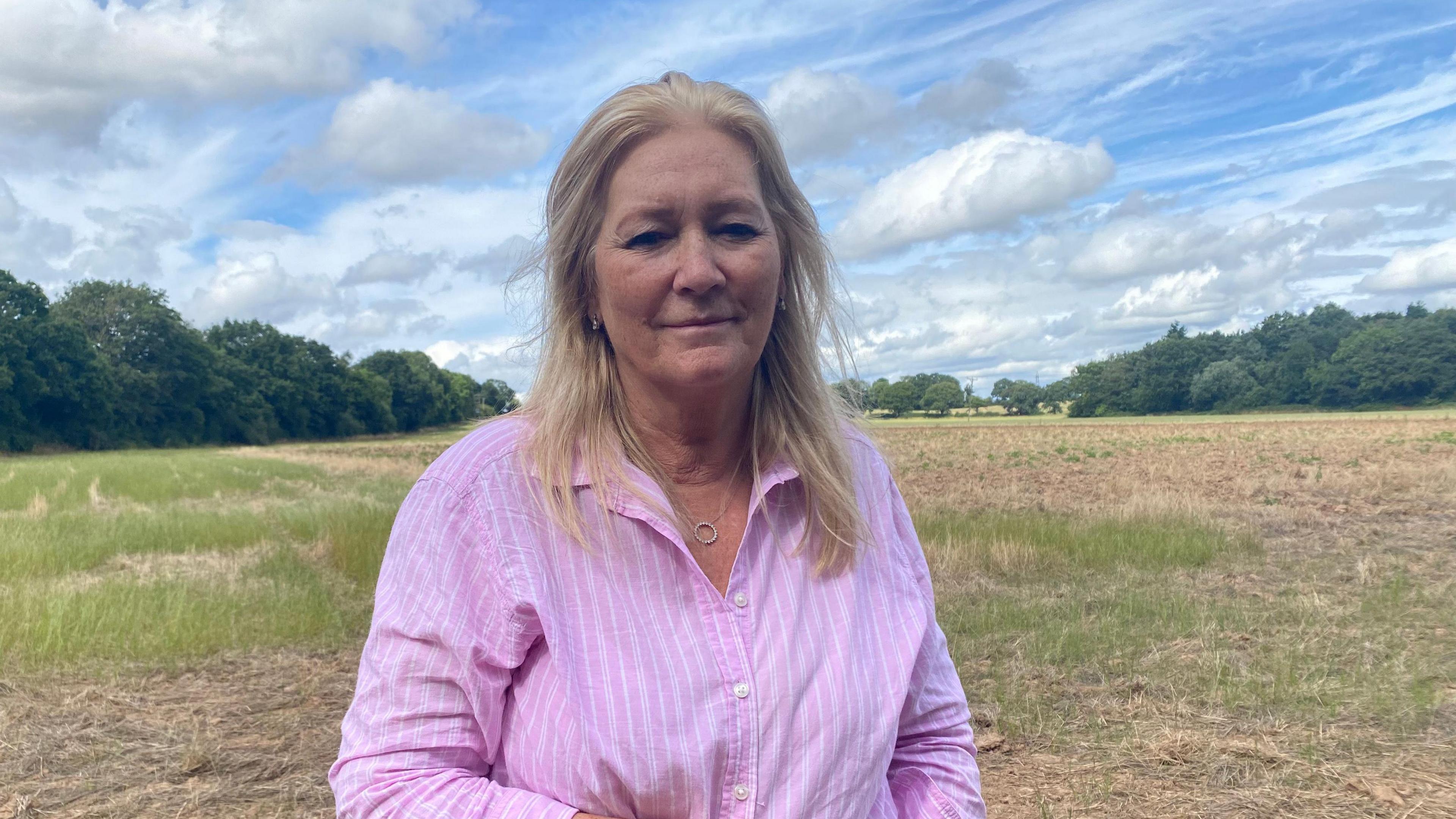
Cathie Barrs says her family wants to futureproof Littlebrook Farm with solar power
- Published
As cars zip down the M6 near Bedworth, Warwickshire, a large field alongside the motorway lies empty.
With parched grass and dry mud as far as the eye can see, the field looks like typical farmland and has been used for growing crops in the past.
But the owners of this land are embracing a new type of farming, one that yields renewable energy rather than food.
“One of the things we’d like to do is diversify and futureproof the farm for our sons,” says Cathie Barrs, whose family has been farming in the area for decades.
The local council has approved the family’s planning application for a 50-acre solar farm with battery storage, and a solar-powered vertical farm.
Mrs Barrs says they grow crops on most of the 800-acre Littlebrook Farm. "But," she adds, "we feel that for the next generation, it’s really difficult to farm in a profitable manner.
“So we feel this is the way we’d like to go and it’s a very clean technology.”
Starting with initial research in 2019, it’s taken five years to get to this stage. And yet, not a single solar panel can be seen on the ground.
Mrs Barrs described the planning process as “onerous”.
The new Labour government says it wants to do something about that, by reforming the planning system and making it easier to build solar farms.
One change it’s already proposed, external is raising the threshold at which solar farms can be approved by local authorities, rather than being referred up to ministers, which causes delay.
It’s a technocratic tweak, but Labour believes such reforms will help the government deliver on its pledge to triple the amount of solar power by 2030.
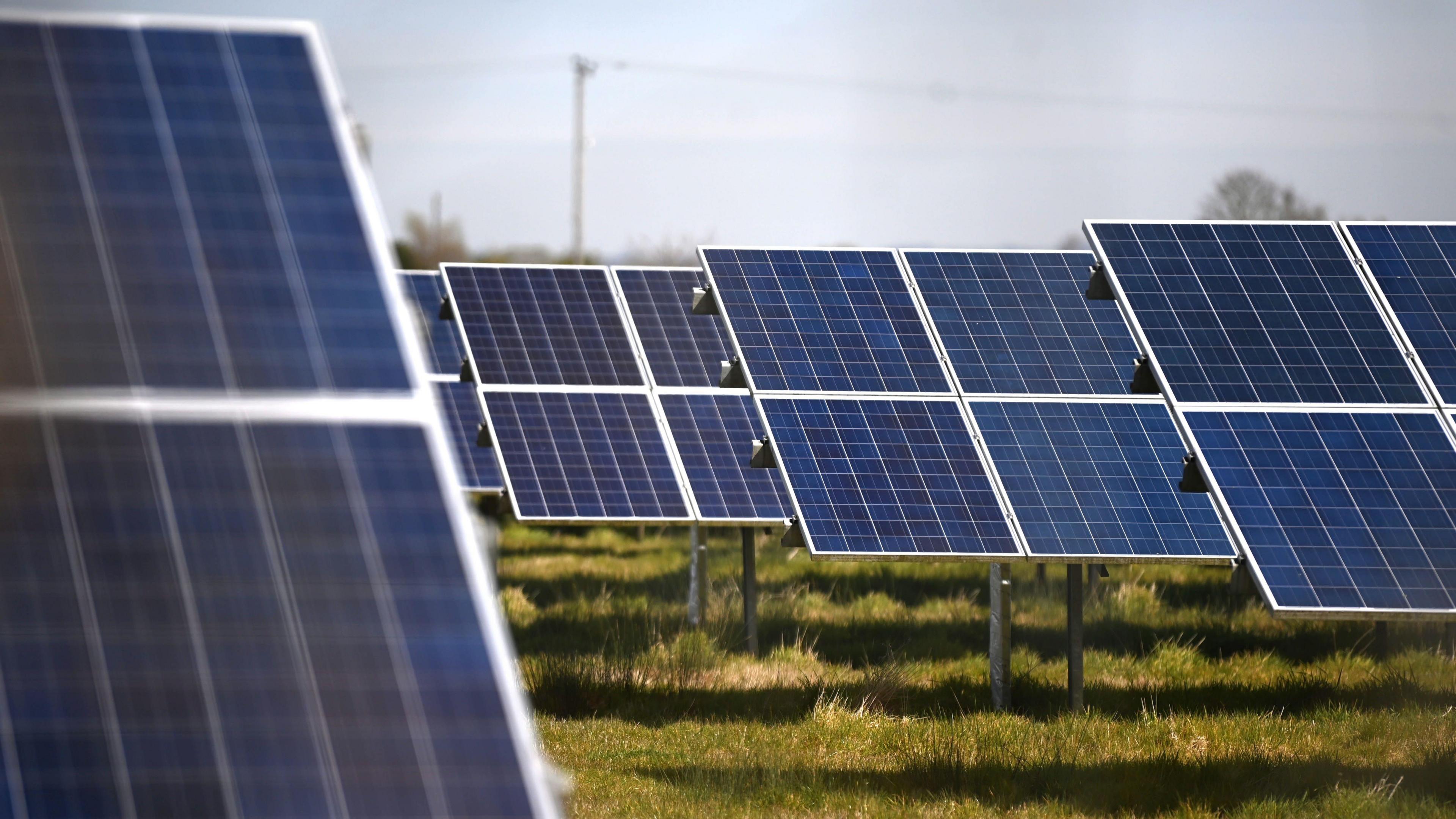
The Labour government wants to massively expand solar power capacity
“I don’t know at this stage what the Labour Party’s policy is,” Mrs Barrs admits. “But for us, it would have made our lives a lot simpler if we’d had an easier process to manage.”
Solar power isn’t universally popular in the farming world though.
Marion Keeley, a farmer near Balsall Common on the Solihull side of the Warwickshire border, says she has concerns about a proposed solar development in the area and the food security of the nation.
"This country we live in is an island," she says. "And food security when you live on an island is just as important as energy security."
She says in an insecure world, we need to produce most of our food and not rely on imports.
Solar panels currently cover just 0.1% of all land in the UK, and they can sit alongside sheep grazing and crops. The UK government’s latest assessment of food security, external shows a “broadly stable picture”, with the country relying on imports for roughly 40% of its food.
The National Farmers’ Union (NFU) has taken a pragmatic position on solar. It says balance has to be struck between food security and climate ambitions.
An NFU spokesperson says solar farms “must be recognised by local authorities as another way of helping farming business become more sustainable and viable”.
They add: “Planning guidance states that, wherever possible, large scale solar farm development should be located on lower quality agricultural land, avoiding the most productive and versatile soils.”
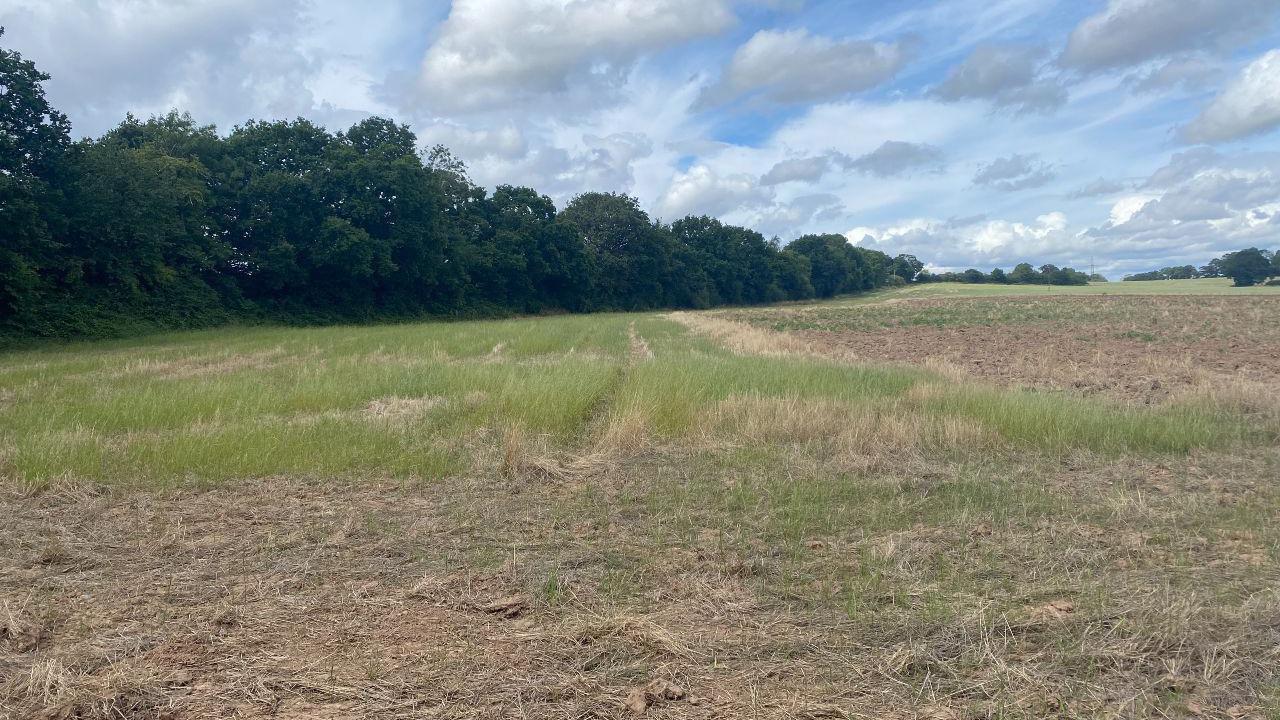
The council has granted planning permission for a 50-acre solar farm near Bedworth
Then there are the tenant farmers, whose status gives them less say. Some have been evicted by landlords who want to generate solar power on their land.
Back on Littlebrook Farm, Mrs Barrs says tenant farmers needn’t lose out.
She says they could carry on grazing sheep or growing crops on the ground, as her family intends to do.
“Anything new is very controversial, isn’t it?" she states.
“People get very emotional and sometimes miss the facts, but it’s a very clean energy that’s cheap to produce.”
In a part of the country where coalmining once dominated the landscape, another politically contentious energy transition is under way.
And in part, it will be defined by the way we use our fields and the sun shining on them.
Related stories
- Published25 February 2024
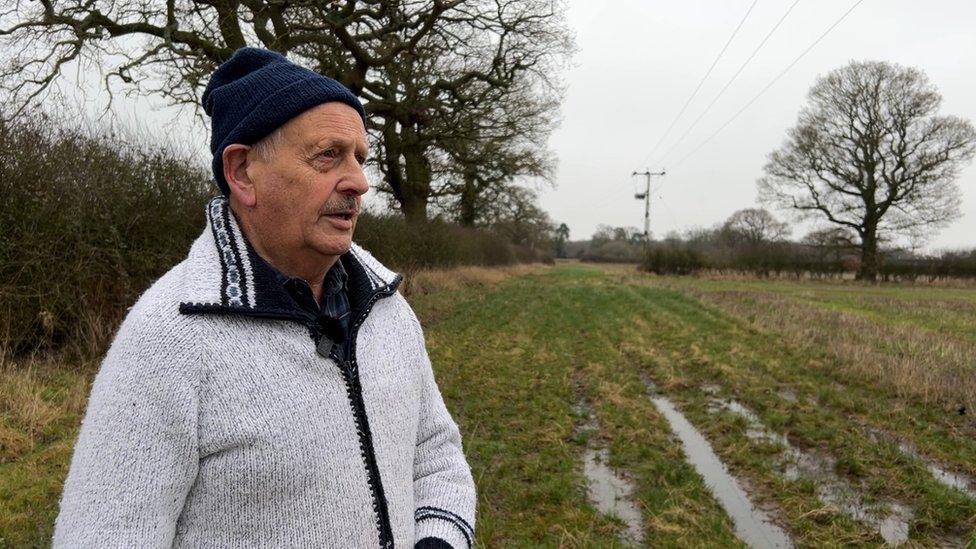
- Published24 July 2024
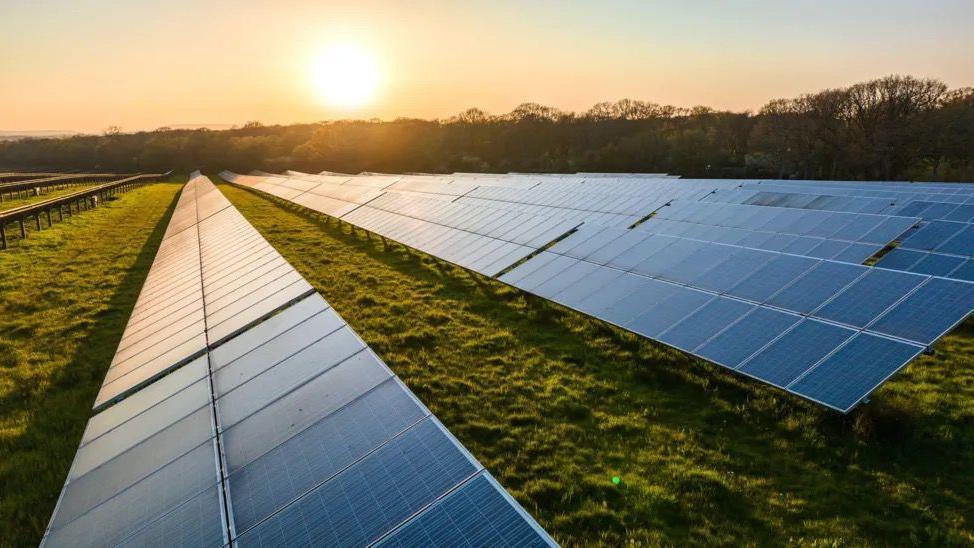
- Published1 March 2024
